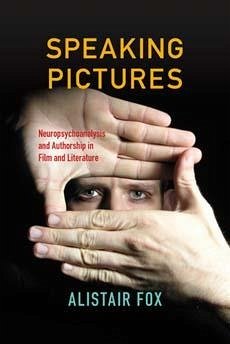
Speaking Pictures
Neuropsychoanalysis and Authorship in Film and Literature
Versandkostenfrei!
Versandfertig in über 4 Wochen
28,99 €
inkl. MwSt.
Weitere Ausgaben:

PAYBACK Punkte
14 °P sammeln!
Alistair Fox is Professor Emeritus of English at the University of Otago, New Zealand. He is author of Jane Campion: Authorship and Personal Cinema (IUP, 2011), translator of Anne Gillain¿s Fran¿s Truffaut: The Lost Secret (IUP, 2013), and editor (with Rapha¿e Moine, Hilary Radner, and Michel Marie) of A Companion to Contemporary French Cinema.



